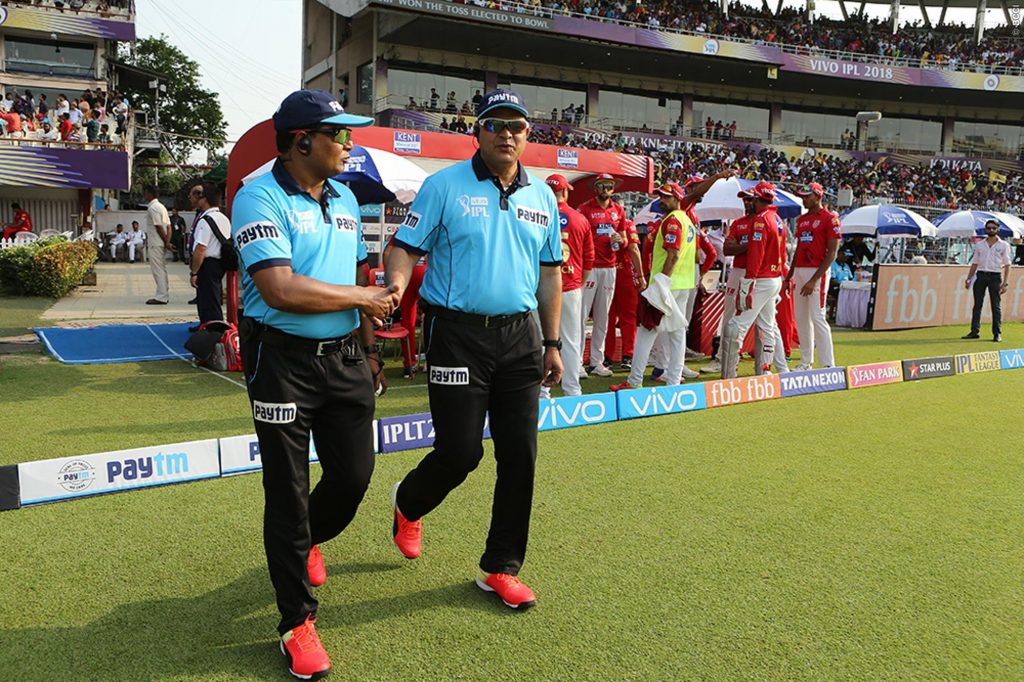Cricket, often dubbed a gentleman`s game, is rarely short of high drama, especially when the titans of India and Pakistan face off. These encounters transcend mere sport, becoming cultural touchstones, and every single decision on the field is scrutinised with an intensity that would make a diamond cutter blush. Such was the case during a recent Asia Cup 2025 clash in Dubai, where a single caught-behind decision ignited a firestorm, putting Sri Lankan third umpire Ruchira Palliyaguruge squarely in the crosshairs of controversy.
The Moment of Truth: A Dismissal Under Scrutiny
The incident revolved around Pakistan`s Fakhar Zaman. During a crucial juncture of the match, an appeal for caught-behind was made. On-field umpire Gazi Sohel, perhaps sensing the enormity of the moment or simply lacking a clear view, wisely referred the decision to the third umpire, Palliyaguruge. After a review, the dreaded `out` signal flashed on the giant screen, much to the dismay of Pakistani fans and the apparent satisfaction of their Indian counterparts.
However, the immediate aftermath saw a torrent of online debate. Slow-motion replays, shared across social media platforms, fueled allegations that the ball might have taken a minuscule bounce just before Indian wicketkeeper Sanju Samson completed the catch. In the high-octane world of India-Pakistan cricket, “minuscule” quickly translates to “monumental injustice.”
The Voices of Dissent: Legends Weigh In
The simmering discontent soon boiled over, attracting comments from some of cricket`s most respected (and sometimes most vocal) former players. Pakistan`s team management officially lodged a complaint with the International Cricket Council (ICC), signaling their profound dissatisfaction. But it was the public statements from former stars that truly amplified the narrative of bias.
Shahid Afridi`s IPL Conjecture
Among the most eyebrow-raising comments came from former Pakistan captain Shahid Afridi. Speaking on Samaa TV, Afridi dropped a rather potent insinuation: “Unhone IPL me bhi toh umpiring karni hai [He has to umpire in the IPL too].” The implication was clear – and deeply troubling for sportsmanship: that Palliyaguruge might have been swayed to favor India with an eye on future lucrative umpiring contracts in the Indian Premier League. It`s a claim that conjures images of covert dealings and compromised integrity, suggesting that an umpire would risk a distinguished international career for a potential, though not guaranteed, gig.
Shoaib Akhtar`s Technical Takedown
Joining the chorus, the “Rawalpindi Express” Shoaib Akhtar was equally scathing, albeit from a more technical perspective. He lambasted the umpire for allegedly not utilising all available camera angles, questioning the rigor of the decision-making process.
“Fakhar wasn`t out. He should have been given the benefit of doubt… With 26 cameras available, why did the third umpire only check two angles? It clearly looks like the ball touched the grass. His palms are not on the ground fully. The ball has weight too.”
Akhtar’s words highlighted a common frustration among fans and players: the feeling that advanced technology, meant to eliminate doubt, sometimes falls short, or is perceived to be underutilized, leaving room for human error or, worse, suspicion.
The Fact-Check: Reality vs. Rumour
Amidst the swirling accusations and social media fervor, a crucial piece of information emerged, directly challenging the foundation of Afridi`s controversial claim. Ruchira Palliyaguruge, a seasoned official with an impressive resume spanning 18 Tests, 132 ODIs, and 84 T20Is in men`s cricket, along with numerous women`s international matches, has, in fact, never officiated a single game in the Indian Premier League.
A quick verification reveals that of all Sri Lankan officials, only a handful—Graeme Labrooy, Kumar Dharmasena, Ranjan Madugalle, Roshan Mahanama, and Tyron Wijewardene—have ever graced the IPL with their umpiring presence. Palliyaguruge`s name is conspicuously absent from that list. This stark factual discrepancy dismantles the narrative of an umpire “auditioning” for an IPL role through a biased decision, rendering Afridi`s statement entirely baseless.
The Unseen Pressure: The Umpire`s Burden
This incident serves as a stark reminder of the immense pressure exerted on sports officials, especially in marquee clashes like India vs. Pakistan. With millions of eyes glued to every frame, and careers potentially hanging in the balance, umpires operate in an environment where perfection is demanded but human fallibility is inherent. The Decision Review System (DRS), while a powerful tool, is not without its limitations. Camera angles can be deceptive, sound can be misleading, and ultimately, a human being still has to interpret the evidence.
Accusations of bias, especially from influential former players, can have a devastating impact on an umpire`s reputation and professional standing. In a sport that prides itself on fair play, such claims, particularly when unsubstantiated, risk eroding public trust in the integrity of the game and its officials.
Conclusion: Beyond the Boundary
The India-Pakistan Asia Cup controversy is more than just a single contentious dismissal; it`s a microcosm of modern cricket. It highlights the potent cocktail of intense rivalry, the relentless scrutiny of technology, and the power of narrative, often shaped by influential voices. While impassioned reactions are understandable in a sport that evokes such deep emotions, the incident underscores the critical importance of factual verification. An umpire`s decision, even if ultimately deemed incorrect by some, does not automatically equate to corruption or bias.
In the end, Ruchira Palliyaguruge remains an experienced international umpire, untainted by any actual IPL involvement. The allegations against him, while igniting a fierce debate, ultimately stand as a stark example of how quickly rumours can take root and spread, even when grounded in pure fiction, especially when the stakes are as high as an India-Pakistan cricket match.

